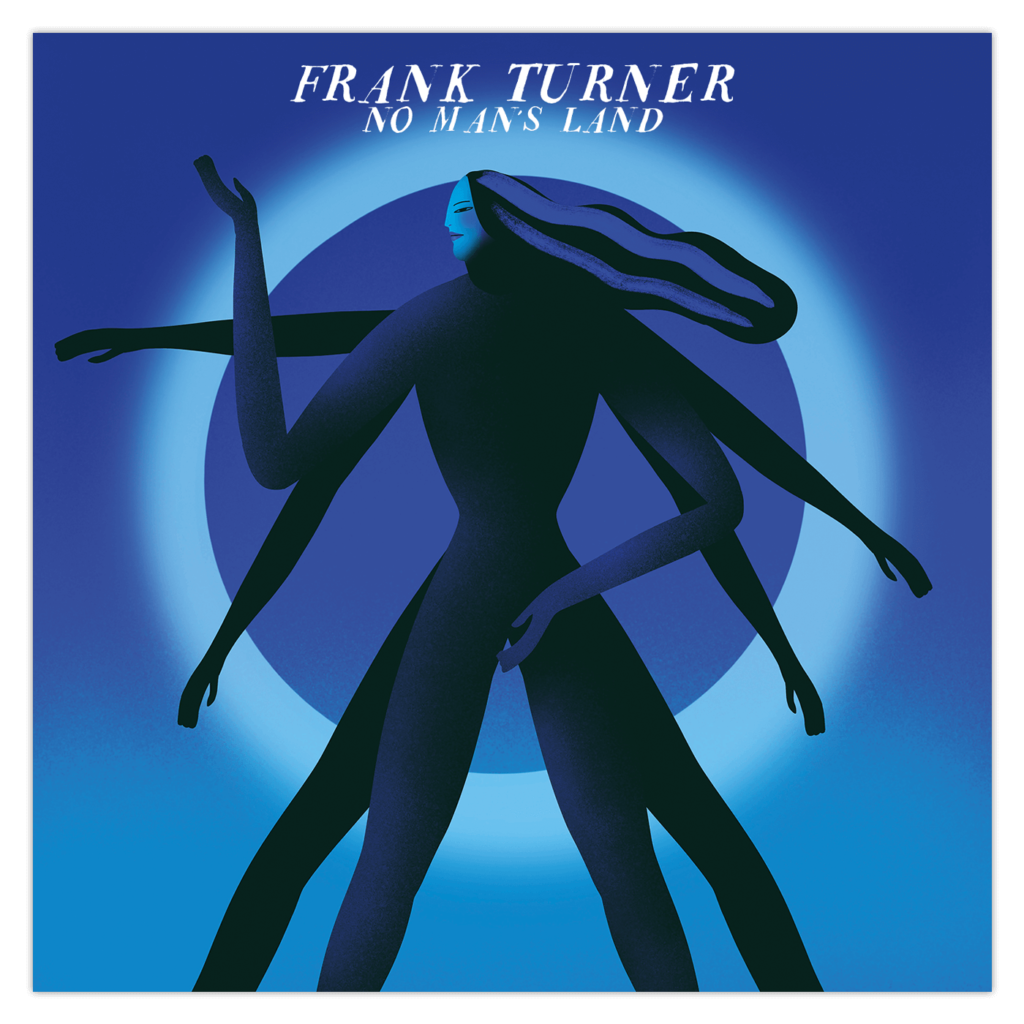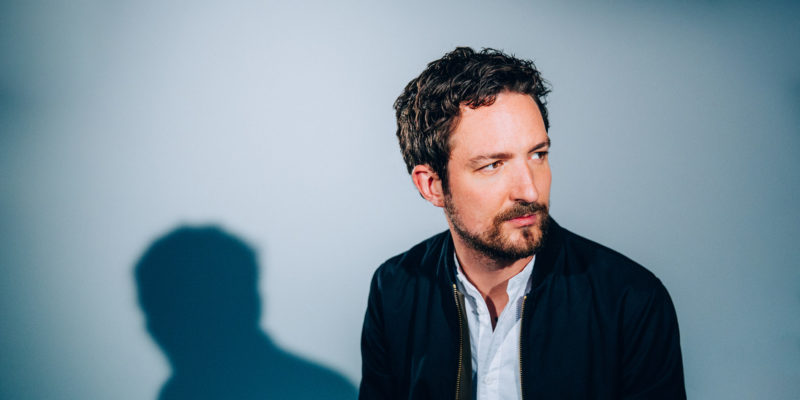From post-hardcore to folk-punk, solo acoustic through full-band vibrancy – world tours, sell-out shows, a plethora of projects and appearances – one of music’s busiest artists and undoubtedly a champion for the aspiring singer-songwriters of the have guitar, will travel sentiment; Frank Turner just kicked off a brand new tour, and was kind enough to let us interview him. Here’s how it went.
* * *
Hi Frank, what a pleasure – thank you for the interview! Your first full solo tour since 2011 kicks off this week – what’s on your mind at a time like this?
I’m generally getting myself in the zone, remembering how to play solo shows, working out my set-list. But also generally just being excited for the shows.
Have your feelings towards touring or live performance changed at all over time?
Not overall, but I think about the specifics, the mechanics, all the time, and I like to think I’ve learned a lot over the years and got better at it. I still just love playing shows.
You regularly write extensive, detailed blogs about your live shows and experiences, what was it that prompted you to start doing this?
It seemed (seems) like a cool thing to do, not much more than that.
What was the main thing you took away from your recent experiences in Sierra Leone?
It’s a humbling thing, being involved in a project like that. My recent trip was my third, and the new feeling I got was one of some small progress. It feels like the plans laid, the funds raised, are starting to make a tangible difference to some of the people I’ve encountered out there, and that’s a wonderful thing.
In terms of experiencing things that impact you or change your perspective, what do you search for when booking new live appearances or making plans, and how does this connect with what you define to be your role as an artist?
The main directive in booking shows and tours (something I don’t directly do myself) is more to do with promotion and making a living really. I do of course try to keep things interesting, both for myself and the audience – for example, trying out the new unplugged set we did lately. A large part of my role is that I have a career, a living to make. My role as an artist is to make the best, most honest art I can; no more, no less.
On top of everything else, you started the podcast Tales From No Man’s Land. What attracted you to this format, and what drew you to exploring the stories of historical women?
The podcast came about because the songs I had for No Man’s Land were pretty in depth, and I was looking for a format in which to expand on the topic, to pay the respect due to the lives of the people I was discussing. We tried out a few different ideas – a book, TV and so on – but podcasting fit best.
It’s a new format, so the rules are unclear, which means you can do what you want. In terms of the subject matter for the record itself, I started out trying to write a history record, partly because I love history and partly because I wanted to try writing something other than autobiography. About 5 songs in I realised that every song thus-far was about a female historical figure, so I decided to follow that imperative.
Which story from your research has stood out or impacted you the most, and why do you think that is?
I think the most eye-opening story for me was that of Huda Sha’arawi. I was completely ignorant of her life story and historical role, and it taught me a lot about feminism in the Arab world.

Do you ever struggle to stay motivated when things are so consistently busy for you?
I tend to be busy because I make myself busy, I’m the one piling stuff onto my to-do list. There are days that get pretty stressful, of course, but taking the long view, things operate at this level of hecticness because I choose that.
Massive congratulations on the recent wedding! Has married life impacted your view of the world or your attitude towards touring at all?
Thank you. Marriage is excellent, thusfar. It’s a big change in many ways, but obviously it felt (and feels) like the right thing to do. I have a slightly more sane touring schedule as a result these days, but that’s also linked to people in the band having kids and so on. In general, we’re all getting older, and this is a marathon, not a sprint.
Has your approach to songwriting changed much over the past decade or so?
I hope so; I have no interest in repeating myself.
I noticed you occasionally joke about popularity being fleeting. How much truth is there to this, and is it something you worry about, is it something you try to combat in any way, or will it not be such a bad thing if you’re able to play small venues more often in the decades ahead?
It is fleeting. I’ve seen plenty of great artists (and some not so great) come and go in my time. It’d be simply unrealistic of me to operate under any other assumption. In a way it’s not worth worrying about, and I wouldn’t want those considerations to influence my artistic decisions. My duty is to do my best as an artist, and I’ll play for whoever wants to come.
What’s been a significant change you’ve noticed in the music / entertainment industry over the past ten years?
The whole structure of the industry has been constantly shifting during my time, to the extent that I’ve just kind of got used to things always being different each time around. The internet destroyed a pre-existing business model. I have mixed feelings about that – in essence, I’m not hugely wedded to business models per se, but then if something is pulled down, something else does need to replace it. I feel like things are in a more coherent place right now than they have been for a good few years, but time will tell.
A lot of our followers are independent artists and bands, various genres and styles, trying hard to build an audience. What would you say were the most crucial steps you took in reaching a level at which you could connect with a broader audience, bag festival sets, and sell out shows across the board?
I could get into the specifics about finding an agent, getting tours, merch or whatever, but a lot of that stuff changes incrementally all the time and I’m not sure how relevant my advice from experience in 2006 is now. Beyond that, I’m actually still a believer that quality will out, despite all the old tropes about the music industry. Be good at what you do. Be really good. Be unignorable.
Would you do anything differently if you were just starting out as an unheard-of indie artist right now?
As I say, I suspect things are very different now in many ways. I’m not really interested in counterfactualism. My only regrets about the way my career has gone have to do with the moments when I’ve doubted my own gut instincts.
What are you the most excited about for 2020?
Lost Evenings 4 in Berlin, and then making a new record.
Is there anything you’re apprehensive about?
I’m keeping an eye on the Coronavirus news right now. That might have some pretty harsh medium-term impact on touring. I hope not, but who knows right now?
If you could sit down to lunch with anyone at all, past or present, who would it be, and what would you ask them about?
Clive James. I’d have liked to talk about culture with him, and writing poetry.
What’s it really like having your birthday between Christmas and New Year?
Fine. I don’t know any different!
* * *
A massive thank you to Frank for his time & insight. Stream No Man’s Land via Spotify, download or stream the project Be More Kind here or grab tickets to the tour. Find & follow Frank Turner on Facebook, Twitter & Instagram or visit his Website. Header photo by Ben Morse.

